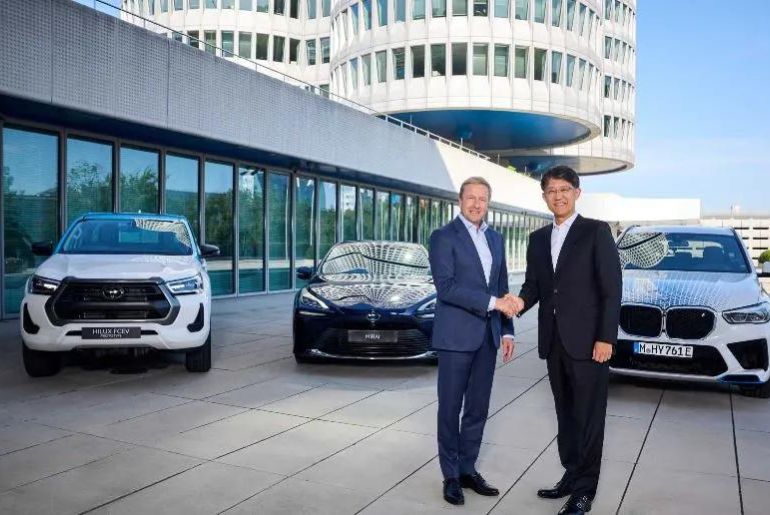The BMW Group and Toyota Motor Corporation are extending their ten-year partnership to introduce a new generation of fuel cell electric vehicles (FCEVs) to the market in an audacious effort to promote hydrogen mobility. Both manufacturers are collaborating to create state-of-the-art hydrogen fuel cell powertrain systems with the goal of providing customers with more all-electric options that have zero local emissions, all while sharing a commitment to carbon neutrality.
In 2028, BMW intends to introduce its first-ever FCEV into series production, a significant development for the automotive sector. Through this partnership with Toyota, both businesses will be able to take advantage of their combined experience and resources, which will reduce expenses and increase the number of people who can afford hydrogen-powered cars.
Oliver Zipse, Chairman of the Board of Management at BMW AG, highlighted the significance of this development, “This is a milestone in automotive history—our first-ever mass-produced fuel cell vehicle. Powered by hydrogen and driven by our cooperation with Toyota, this vehicle will mark the beginning of a new era in zero-emission mobility.”
The hydrogen economy is about to undergo a transformation because to BMW and Toyota’s alliance. The two businesses are dedicated to creating a sustainable hydrogen supply chain and promoting the growth of hydrogen refueling infrastructure in addition to developing vehicles. They think that this partnership will be essential to establishing hydrogen as a sustainable energy source in the future, to go along with battery electric vehicles (BEVs) and other environmentally friendly technology.


